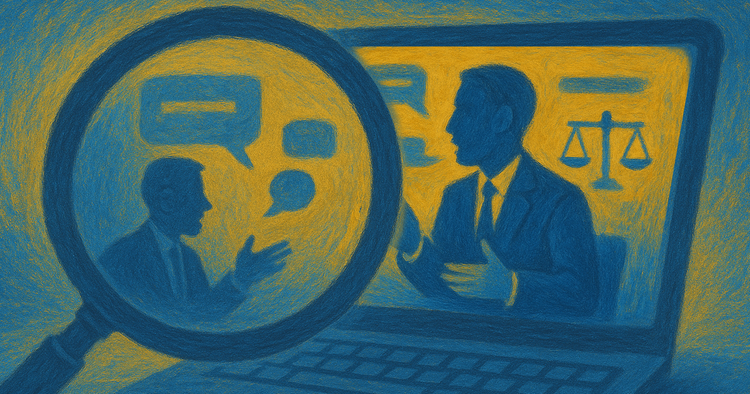4 Ways Virtual Depositions Are Reshaping Legal Practice

When courtrooms closed and flights were grounded in 2020, the legal profession found itself in uncharted territory. For years, virtual depositions had lingered as a niche option, rarely used, and often dismissed as impractical. Then, almost overnight, they became the only option. Legal professionals and clients adapted, often not by choice but out of necessity. What began as a stopgap to keep cases moving during lockdowns has since evolved into a preferred practice, blending efficiency with modern technology.
Today, virtual depositions aren’t just a pandemic workaround—they’re reshaping how legal teams conduct business. From cost savings to improved accessibility, virtual depositions are redefining the possibilities of legal practice in a connected world.
The New Normal: Evolution of Remote Legal Proceedings
Before the COVID-19 pandemic, the legal industry was slow to adopt remote work. Virtual depositions were an anomaly, reserved for rare cases with unique circumstances, like remote witnesses in nursing home abuse claims who could not physically travel to give testimony. In fact, 87% of legal professionals reported that, prior to 2020, they rarely used virtual options, if ever. The pandemic upended this paradigm, forcing the nearly universal adoption of remote proceedings as quarantine protocols grounded in-person legal work to a halt. Within months, virtual depositions surged to an adoption rate nearing 90%, transforming a once-dismissed tool into a critical pillar of legal practice.
Today, virtual depositions occupy a central role in the hybrid legal landscape. Experts predict that 50–80% of depositions will remain virtual, thanks to increased familiarity and improved technology. The virtual deposition market is also expected to grow substantially within the next five years, estimated to reach $500 million by 2028. Attorneys and legal support staff have overcome initial skepticism, aided by features like secure cloud-based platforms and remote oath policies adopted in nearly every state. With the legal sector embracing digitization and the flexibility of hybrid work, virtual depositions are necessary to meet modern demands.
Dramatic Cost Reduction and Resource Optimization
Virtual legal work has significantly impacted efficiency and cost savings. Previously, attorneys and court reporters spent an inordinate amount of time traveling to and from in-person depositions. Now that virtual depositions are common, legal professionals can spend more time on billable work instead of travel, eliminating associated expenses like mileage, flights, and accommodations.
Operational efficiency for law firms has also improved. In remote-friendly jurisdictions, there’s no longer a need for per diem payments to court reporters, an on-average savings of $100-1000. Reporters can also handle more depositions in a day with less travel. Integrating AI for transcription services has also reduced labor costs and streamlined document review. At the same time, cloud-based legal tech can increase productivity and scalability.
Environmental Sustainability Through Digital Transformation
Remote work, in general, has improved sustainability. Full-time remote workers produce 54% less greenhouse gas emissions than in-office workers. When it comes to hybrid work, like law, 2-4 days of remote work can reduce emissions by up to 29%. With commutes lessened, traffic congestion has been reduced, as has in-office energy use. The move to web and cloud-based eDiscovery platforms has also minimized paper usage.
By embracing these shifts, law firms are meeting sustainability goals and aligning with broader Environmental, Social, and Governance (ESG) initiatives. As reduced commutes, paperless workflows, and energy-efficient practices become the norm, the legal industry is proving that modernization and environmental responsibility go hand in hand. These changes aren’t just good for the planet—they’re shaping a greener, more efficient future for legal practice.
Enhanced Work-Life Balance for Legal Teams
Work-life balance has always been a challenge for legal professionals. The industry is demanding, and virtual options weren’t as prevalent before the pandemic. Many attorneys work more than 60 hours a week, according to the American Bar Association (ABA), and 52% reported feeling burned out.
Virtual depositions help legal teams reclaim their time, eliminating long commutes and enabling flexible schedules. Professionals can now handle back-to-back sessions efficiently and even accommodate last-minute depositions with ease. This newfound adaptability improves productivity and reshapes attorney satisfaction and retention in a profession where work-life balance has often felt unattainable.
Increased Accessibility and Participation
Witnesses who were once out of reach due to logistical challenges or financial constraints are now just a click away. Virtual depositions have removed geographic barriers, eliminating constraints that traditionally required witnesses to be within 100 miles of a subpoenaing court. Whether coordinating with an expert witness across the country or deposing a party internationally without incurring exorbitant costs, remote depositions have made routine what once seemed impossible.
The benefits extend further. Legal professionals can now include participants who might have been excluded due to physical disabilities or mobility issues, creating a more inclusive process and lowering the bar for access to justice. For rural residents or those with limited financial resources, virtual options eliminate the need for expensive and time-consuming travel. This accessibility doesn’t just level the playing field; it opens the door to cases that lawyers might have previously declined due to logistical hurdles. With modern technology at the helm, participation in legal proceedings is no longer limited by physical proximity—it’s defined by possibility.
Embracing Change: The Lasting Impact of Virtual Depositions
Virtual depositions represent more than technological advancement—they’re reshaping the fundamental nature of legal practice. Remote proceedings have proven their value well beyond pandemic necessity, delivering financial, environmental, and accessibility benefits. As the legal industry continues its digital evolution, virtual depositions are a testament that necessity can drive innovation, creating more efficient, sustainable, and inclusive legal practices. The future of law is virtual, and it’s already here.




